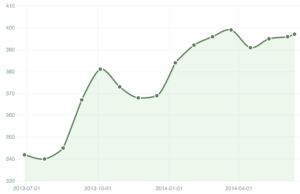Both Drupal and WordPress are open-source content management systems. Both have thousands of developers behind them. Both have benefits and limitations. So what’s the major difference between Drupal and WordPress? Well, depends on who you ask.
This blog post is relevant if you’re considering a new website, curious about the differences between common content management systems like WordPress and Drupal, or looking to better understand why Drupal has been recommended to you.
When it comes to the battle between WordPress and Drupal, common sentiments can be summed up in one line: If you want to go fast, use WordPress; if you want to go far, use Drupal. Developers have long typecasted WordPress as the faster, easier-to-use CMS, while Drupal gets pegged as the more difficult but more capable CMS. WordPress is the race car, getting you somewhere quickly with just the turn of a key; Drupal is the Amtrak, going further and taking more people but with a significantly higher operating cost and implementation time.
Is there more to the story than that? Here’s a summary of recent Drupal press:
- ComputerWorld shared Why We Use Drupal in February 2013; in this case study, Drupal is described as the best solution for more complex websites with lots of features or lots of members. It’s also identified as more difficult for less technical developers to manage.
- RackSpace features a comparison article of the top three CMS tools: WordPress, Drupal, and Joomla in April 2013; their description of Drupal identifies it as the most complex of the three but also highlights its powerful system for tagging and organizing content, which is ideal for large, robust, dynamic sites (but often overwhelming for smaller, more direct sites). These comparison articles are pretty common; you can also see them published by udemy, ITX Design, and WebsiteSetup.org.
- The Drupal Association published an article in March 2014, “Addressing the Growing Demand for Drupal Talent .” The article points out a possible limitation of Drupal, which is that Drupal developers are currently in demand and some areas are experiencing talent shortages.
- The Australian Government recently announced its intent to use the Drupal platform, citing a desire to standardize their large number of government sites and a need for a CMS that will help maintain this massive amount of content at a lower cost.

This graph demonstrates that the % of the top 10k websites that use Drupal is on the rise. Source: http://trends.builtwith.com/cms/Drupal.
If you’re exploring options for your large, dynamic site, and you’re looking to manage many features and many online members, Drupal may be the best solution for you. If you’re creating your first site, creating an information-based site, or looking for a lower cost option, WordPress might be a more appropriate solution.
The best next steps might be finding the most appropriate hosting provider for Drupal, exploring sites that currently use Drupal, or contacting Reify about starting a Drupal web project.




























